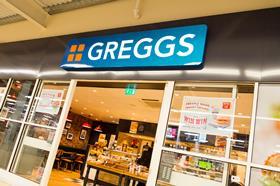A legal battle between insurers and high street retail giants seeking to claim hundreds of millions in compensation under their business interruption policies looks bound for the appeal court, following the latest batch of rulings yesterday.

In a January 2021 test case, the Supreme Court ruled that many insurers had been wrong to deny compensation to thousands of companies hit by the Covid-19 pandemic. The case was brought by the Financial Conduct Authority on behalf of 370,000 affected policyholders. Over £1bn has been paid out so far, but the ruling did not cover all policy wordings and some insurers continue to dispute payout levels.
Judgment was given yesterday by Mr Justice Butcher in claims brought by: bakery giant Greggs; Slug and Lettuce owner Stonegate, Britain’s largest pub group; and Strada and Coppa Club owner Various Eateries. The defendant insurers involved include Zurich, Liberty Mutual and Allianz.
The Greggs ruling partly centres on how many Single Business Interruption Limits were payable under the insurance wordings as a result of Covid-19 disruption. Insurers contended that there was only one ‘single occurrence’ under the insurance policy, entitling Greggs to only one limit of £2.5m for all of its Covid business interruption losses. The judge rejected this argument.
Greggs argued that it was entitled to access a separate limit of £2.5m each time the Westminster and devolved governments in the UK adopted a major Covid restriction measure affecting Greggs’ business, meaning that there were multiple such restrictions. The retailer has claimed more than £150m under its policy with Zurich.
Manoj Vaghela, a partner at Charles Russell Speechlys, which represented Greggs, commented: ‘This outcome vindicates Greggs commencing proceedings and has wider implications for all businesses that purchased the Resilience Insurance policies. Insurers’ argument that there was only one limit available for Covid business interruption losses has been firmly rejected.’ Jonathan Jowett, general counsel of Greggs, said that subject to appeal, Greggs plc v Zurich Insurance plc will now proceed to phase 2, when insurers and Greggs will calculate the value of the business interruption loss recoverable under the policy.
The specialist business press, by contrast, interpreted the three rulings as a win for insurers overall, because the judge ruled the industry could deduct furlough support from payouts.
Stonegate insurer MS Amlin insisted the judgment in its case ‘fundamentally’ supports insurers’ positions. The insurer noted that the case considered, among other things, the extent to which losses were caused by cases of Covid-19 and government action within the policy period as well as whether insurers were entitled to credit for furlough payments received by Stonegate.
Johan Slabbert, chief executive officer at Stonegate insurer MS Amlin Underwriting, told Insurance Business magazine that the ruling 'brings some genuine clarity to a very complex business interruption case'. He hailed the 'positive outcome' for the insurance industry, noting that the ruling will have an enormous financial impact on the sector. It is understood Stonegate will appeal.
Charles Dougherty KC of civil set 2 Temple Gardens represented Allianz in the Various Eateries case. The set issued a statement on LinkedIn noting: 'The Commercial Court has handed down judgment in three cases based on the popular Marsh Resilience wording: Butcher J held that the BI losses aggregate around major government action. The judge also adopted a narrower approach to causation of losses than advocated for by policyholders, and further concluded that credit needed to be given by policyholders for furlough payments.'
This article is now closed for comment.



























9 Readers' comments